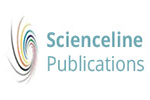(2022) Effects of Nano Zinc on Growth Performance, Health Status, and Cecal Microbiota in Broiler Chickens Challenged with Salmonella Kentucky. World's Veterinary Journal. pp. 105-122. ISSN 2322-4568
|
Text
WVJ 12(1) 105-122, March 25, 2022.pdf - Published Version Download (2MB) |
Abstract
Public concern with the incidence of antibiotic-resistant bacteria, particularly among foodborne pathogens, such as Salmonella, has been challenging the poultry industry to find alternative means of control. The present study was conducted to investigate the effect of dietary replacement of inorganic zinc oxide (ZnO) by different levels of zinc nanoparticles on growth performance, blood serum biochemical changes, immune response, cecal microbiota, and some internal organs histopathology of Salmonella Kentucky (SK) challenged broiler chickens. A total of 180 one-day-old broiler chicks were used in the present experiment. The chicks were randomly allotted into six equal groups (30 chicks/group), with 3 subgroups containing 10 chicks as a replicate. The first group fed on the basal diet supplemented by 100 mg ZnO/kg diet, while the second and the third groups fed on the basal diet with replacement of ZnO by 100 and 50 mg of zinc oxide nanoparticles (ZnONPs)/kg diet, respectively. Moreover, the fourth, fifth, and sixth groups fed as the first three groups with SK challenge on the third day of age. Results showed that supplementation of 100 mg ZnONPs/kg diet instead of ZnO reduced the severity of the clinical signs, post-mortem lesions, mortality, and SK fecal shedding of SK challenged chicks. Replacement of ZnO by 100 or 50 of ZnONPs increased cecal total bacterial counts and lactobacillus bacterial count while reducing total coliform counts. On the other hand, the SK challenge increased cecal total bacterial counts and lactobacillus bacterial counts, compared to the broiler chicks group fed on the diet without SK challenge. The SK challenge with inorganic zinc addition reduced body gain and feed conversion ratio, while 100 or 50 mg ZnONPs/kg diet supplementation instead of ZnO improved growth performance, feed efficiency parameters. It was observed that the replacement of inorganic zinc (serum ZnO) by 100 mg /kg diet significantly increased lysosomal and phagocytic activity by about 261.5 and 17.9, respectively. Moreover, 100 or 50 of ZnONPs instead of inorganic zinc significantly ZnONPs increased liver, spleen, and thymus gland relative weights of SK-challenged broiler chickens, compared to broiler chickens group fed on the same diet without challenge or compared to chicks group fed on ZnO supplemented diet with SK challenge, while replacement of inorganic zinc (ZnO) by 100 or 50mg ZnONPs/kg diet reduced the adverse effect. © 2022. World''s Veterinary Journal.All Rights Reserved
| Item Type: | Article |
|---|---|
| Keywords: | Broiler chicken; Growth performance; Immune response; Nano zinc particles; Salmonella challenge |
| Subjects: | Q Science > Q Science (General) S Agriculture > SF Animal culture |
| Divisions: | World's Veterinary Journal (WVJ) |
| Page Range: | pp. 105-122 |
| Journal or Publication Title: | World's Veterinary Journal |
| Journal Index: | Scopus |
| Volume: | 12 |
| Number: | 1 |
| Publisher: | Scienceline Publication, Ltd |
| Identification Number: | https://doi.org/10.54203/SCIL.2022.WVJ14 |
| ISSN: | 2322-4568 |
| Depositing User: | Dr. Alireza Sadeghi |
| URI: | http://eprints.science-line.com/id/eprint/686 |
Actions (login required)
 |
View Item |

